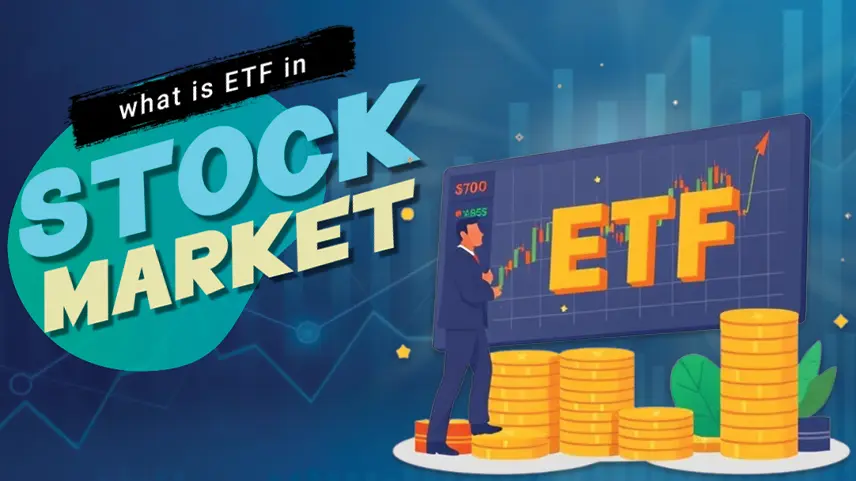What is ETF in Stock Market
ETF- Exchange Traded Funds (ETFs) have become increasingly popular due to the unique benefits and structure. ETF offers the blend of the best features from both individual stocks, mutual funds providing investors with the flexibility and cost-effective investment.

What is ETF?
ETF full form is Exchange Traded Fund is a type of investment fund that looks the collection of assets such as the bonds, stocks, commodities, or a mix of these. ETF meaning are traded on stock exchange through the day, much like individual stocks, Best ETF in India are designed to track the performance of the specific index, sector, commodity, or asset class. Mutual funds which are priced once at the end of each trading day.
How ETF Work
ETFs are created and managed by financial institutions that assemble the assets and issue shares representing the proportional ownership in the fund. Here’s a simplified overview of the ETF creation and trading process:
1. Creation: Authorized participants, typically large financial institutions, create ETFs by purchasing a basket of assets that match the composition of the target index or sector. They then transfer these assets to the NSE Etf provider in exchange for ETF shares.
2. Trading: Once created, ETF shares are listed on stock exchanges and can be bought and sold by investors through brokerage accounts. The price of ETF shares fluctuates throughout the trading day based on supply and demand, as well as the value of the underlying assets.
3. Redemption: Authorized participants can also redeem ETF shares by exchanging them back with the ETF provider for the underlying assets. This process helps keep the market price of the ETF close to its net asset value (NAV).
Types of ETF
1. Equity ETFs: Track stock indexes like the S&P 500 or specific sectors such as the technology or healthcare.
Conclusion
ETFs have individuals invest by combining the advantages of stocks and mutual funds into the single, flexible investment vehicle. They offer the diversification, liquidity, lower costs, and transparency, making them the attractive option for both novice and experienced investors. However, like any investment, they come with their own set of risks and considerations. Understanding how ETFs work and their role in the diversified portfolio can help investors make informed decisions and achieve their financial goals.
Read Also - Explain Stock Market Symbols and its Advantages

0 comments